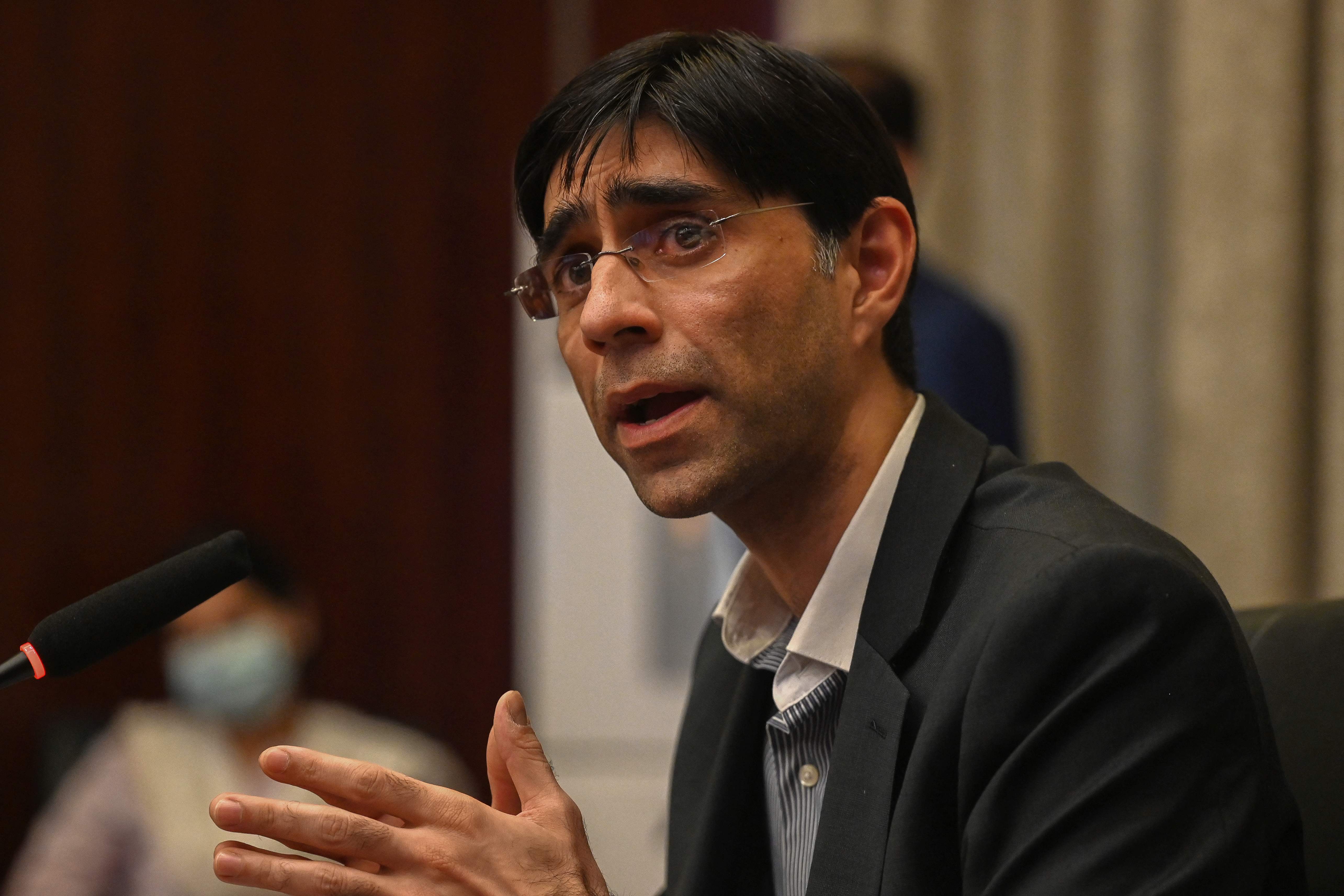Afghanistan at risk of ‘imploding’ and becoming haven for Islamist extremists, Pakistan warns
Pakistan’s national security adviser has warned that, without international assistance, Afghanistan will be an ungoverned space from which Isis and al-Qaeda can plot attacks

Your support helps us to tell the story
From reproductive rights to climate change to Big Tech, The Independent is on the ground when the story is developing. Whether it's investigating the financials of Elon Musk's pro-Trump PAC or producing our latest documentary, 'The A Word', which shines a light on the American women fighting for reproductive rights, we know how important it is to parse out the facts from the messaging.
At such a critical moment in US history, we need reporters on the ground. Your donation allows us to keep sending journalists to speak to both sides of the story.
The Independent is trusted by Americans across the entire political spectrum. And unlike many other quality news outlets, we choose not to lock Americans out of our reporting and analysis with paywalls. We believe quality journalism should be available to everyone, paid for by those who can afford it.
Your support makes all the difference.Afghanistan is at serious risk of imploding as a state and once again becoming a haven for lethal Islamist terrorism if the international community turns its back on the Taliban, a senior Pakistani security official has warned.
The Taliban, having seized power after a swift and successful military offensive, need engagement and assistance, said Moeed Yusuf, Pakistan’s national security adviser. The alternative, he stressed, is to allow the country to become ungoverned space, which would be filled by Isis and al-Qaeda plotting and carrying out attacks in Afghanistan, the region and beyond.
Pakistan has been widely accused of feeding and watering the Taliban, as well as other violent Islamist groups such as the Haqqani network, in sanctuaries across the border. The first foreign public figure to visit Kabul after the Taliban takeover was Lieutenant General Faiz Hameed, the head of Pakistan’s Inter-Services Intelligence agency (ISI) which, it has been claimed, has been the chief sponsor of jihadi groups.
Mr Yusuf, writing in The Independent, maintained that the claims Pakistan played a “double game” were unfounded. He continued: “The reality is that since 2001, Pakistan has been the principal victim of the war in Afghanistan. We have suffered over 80,000 casualties and more than $150bn in economic losses, with over 3.5 million of our own people internally displaced at the height of the terrorist onslaught inside Pakistan.”
The fall of the Ashraf Ghani government proved how disconnected the Afghan political hierarchy was from the public, said Mr Yusuf. “Ashraf Ghani, and regional spoilers like India, created false narratives aimed at masking the reality that international efforts in Afghanistan lacked legitimacy in the eyes of the Afghans,” he said.
The government announced by the Taliban, a few days after Lt Gen Hameed’s visit, is composed overwhelmingly of those associated with Mullah Omar’s regime of 20 years ago or their families. It is all male and all Pashtun, with other Afghan communities, such as the Tajiks, Uzbeks and Hazaras, excluded. Those closest to the Pakistani security establishment, like the Haqqani network, are said to have benefitted the most in the new power structure.
“Pakistan’s expectations of the new government are identical to those of the west,” said Mr Yusuf. “We have repeatedly called for a government that caters to and protects the rights of all Afghans while ensuring that Afghanistan’s territory is not used for terrorism against any country.”
President Joe Biden’s hasty withdrawal of troops from Afghanistan, followed by the collapse of Afghan forces and the chaotic exodus of thousands trying to escape the Taliban, has drawn severe criticism, both from within the US and from among its allies.
“US president Biden’s decision to withdraw troops and end the international military presence in Afghanistan marks the logical conclusion of a war that never had a military solution,” Mr Yusuf added.
A number of countries have pledged a total of more than $1.1 bn in food aid at a UN conference to address the pressing problems facing Afghanistan. A number of others say they will wait and see whether the Taliban honour pledges they have made on human rights and curbing terrorism before deciding on aid, and around $10bn of Afghan money remains frozen at banks abroad, mainly with the US Federal Reserve.
But if the international community walked away from Afghanistan now, said Mr Yusuf, it “would inevitably lead to a security vacuum that would allow Isis, al-Qaeda and other international terrorist groups to thrive once again. Neither of these groups remained confined to Afghanistan or the region last time around. It would be foolish to think that the entire world would not be affected again.”



Join our commenting forum
Join thought-provoking conversations, follow other Independent readers and see their replies
Comments